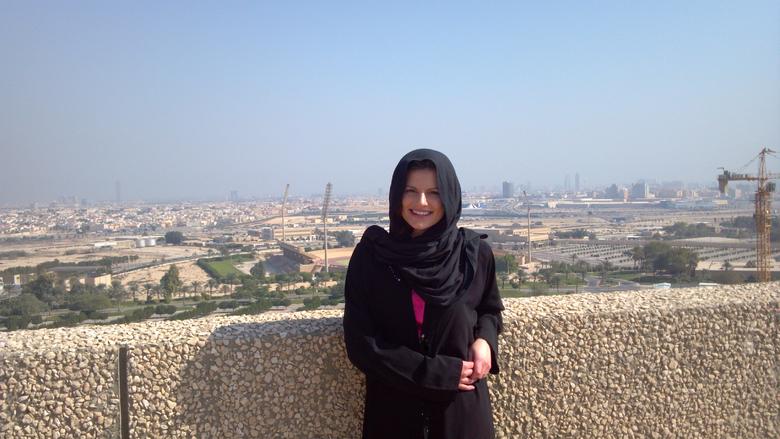
SAUDI NEEDS A GENTLE

According to WSJ, members of the Organization of the Petroleum Exporting Countries won't reach a deal to curb output during talks this week, but could agree to cut production when they meet in November, Saudi Arabia's energy minister said Tuesday.
The remarks by Khalid al-Falih appeared to spell the end of any hope that a deal on production, which already looked unlikely, could be reached during informal talks between OPEC and non-OPEC producers at an energy conference in Algeria.
But at the same time, Mr. Falih, who oversees Saudi oil policy and is among the most influential voices in the energy industry, offered hope OPEC could deliver a deal in November that would go beyond the kind of freeze on output growth that has been discussed, saying the cartel could move to reduce production, instead of just agreeing to hold it steady.
"We need a gentle adjustment to reassure the market," Mr. Falih said at a briefing where he was flanked by his Russian counterpart, Alexander Novak.
Skepticism about a deal being reached in Algeria pushed oil prices lower Tuesday. Brent crude settled down $1.38, or nearly 3%, at $45.97 a barrel; the U.S. benchmark oil price closed $1.26 lower at $44.67.
By pointing to the potential for a cut in November, Mr. Falih is helping ensure markets continue to look to OPEC as a key player in re-establishing a balance between global supply and demand after two years of sliding prices that OPEC hasn't intervened to boost.
Major hurdles remain, however, to reaching any deal that would curb output and put a floor under prices, as the progress of talks in Algiers have illustrated this week.
The biggest obstacle continues to be the stalemate between Saudi Arabia and Iran, bitter rivals for power in the Middle East whose disagreements have scuttled previous OPEC attempts at reaching a production deal.
Iran hasn't yet agreed to any deal, Mr. Falih told reporters Tuesday.
Earlier Tuesday afternoon, Iranian Oil Minister Bijan Zanganeh said he hadn't received any official proposal from Saudi Arabia, and his country has no plans to limit its oil production. Iran is trying to ramp its production back up now that Western sanctions that crippled its oil industry have ended.
Any agreement later in the year would require that position to change and for Saudi Arabia and Iran to find common ground, which many analysts doubt will happen.
"They say they are inching closer to a deal but the Saudi and Iranian positions are still far apart," said Andy Lipow, president of Lipow Oil Associates in Houston. "For Saudi Arabia to cut production, Iran needs to freeze it and that [is] something they won't do. That doesn't bode well for a deal in November."
The Saudi oil minister wouldn't say how much could come out of the market if a deal were to be reached. "It will be called a freeze but will entail a collective cut," he said. It will depend "on what month you freeze," citing February as an example.
A cap using that month as a reference point would mean a reduction of 900,000 barrels a day, according to OPEC data.
Earlier, people involved in the discussions said OPEC members were planning to discuss a proposal on Wednesday that would cut almost 1 million barrels a day of global production over one year. But those people also said that scenario was meant to start discussions that could pave the way for reaching an agreement in November.
Even without intervention, the crude oil market is already rebalancing after its two-year-old slump, Mr. Falih said.
"The worst of the downturn is definitely behind us."
Earlier Tuesday, he said "the market recovery is slower than we thought. But we remain optimistic."
The proposal to reduce output, if eventually adopted, would represent the 14-nation cartel's first concrete action to prop up the market since oil prices crashed beginning in 2014. It would also represent a departure for Saudi Arabia, which has opened the spigots wide during the market slump in a fierce competition for customers with U.S. oil producers and others.
The discussions shift the debate within OPEC back to making production cuts to reduce the global oversupply weighing on prices and come after six months of the cartel considering a so-called output freeze—holding it steady following months of increases.
The proposal puts center stage on the differences between Saudi Arabia and Iran.
Under the proposal, Saudi Arabia would carry out the bulk of the reduction, cutting 400,000 barrels a day from record highs of almost 10.6 million barrels a day in August, the people said. The kingdom is expected to reduce its production anyway as a matter of course as oil demand falls off the summer highs.
In return, Iran would have to agree to freeze at 3.7 million barrels a day—slightly above its August levels, the people said. Non-OPEC members such as Russia and Oman would also be expected to be part of the cuts, the people said.
Iran's reaction to the Saudi-backed plan isn't yet clear, but the proposal wouldn't allow Iran to carry out plans to increase its production to over 4 million barrels a day.
"In the room where the Saudis and Iranians meet, there will always be burning-hot political tensions," said one of the people familiar with the production proposal.
OPEC members appear deeply divided. In talks last week in Vienna, Saudi and Iranian officials couldn't agree on basic details of a production deal. Similar efforts were scuttled in April after Saudi backed out because Iran wouldn't participate.
Production cuts are politically unpalatable with some OPEC members because they can lead to less oil revenue. The people familiar with the proposal said it could be framed to OPEC members as a freeze, using January 2016, for example, as the reference point instead of August, when the cartel's production was unusually high.
-----
Earlier:
SAUDI:
OPEC:
OPEC PRODUCTION UP TO 33.7 MBD




